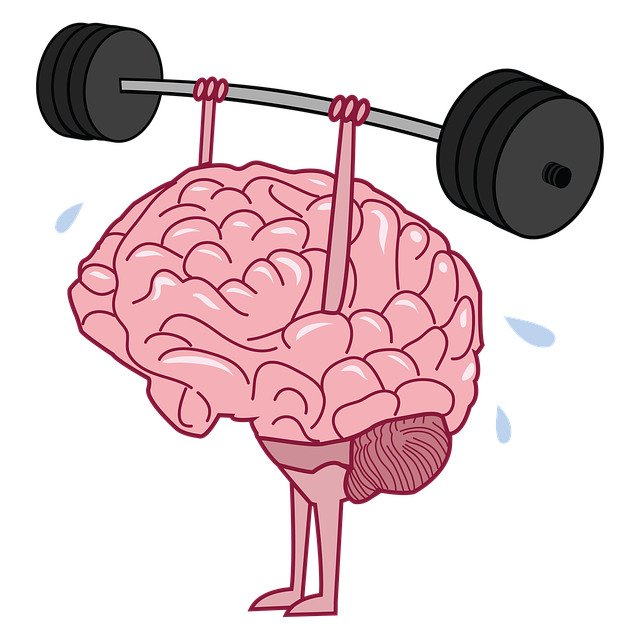Understanding and managing mood regulation in elderly individuals with Autism Spectrum Disorder (ASD) requires specialized, tailored approaches addressing unique aging challenges. Effective therapy focuses on building inner strength through techniques like mindfulness meditation and Cognitive Behavioral Therapy (CBT), improving stress management, emotional control, communication, and social interactions. Healthcare providers play a crucial role in implementing these strategies, fostering self-esteem, and preventing burnout to ensure sustainable care for improved mood stabilization and quality of life among seniors with ASD.
“Mood regulation strategies are essential for managing the emotional well-being of elderly individuals with Autism Spectrum Disorder (ASD). This comprehensive article explores effective approaches tailored to the unique needs of seniors with ASD, focusing on common challenges and long-term solutions. From understanding mood dynamics to implementing therapy techniques, we delve into strategies that enhance mood stabilization and improve quality of life for this population. By examining evidence-based practices, we aim to empower caregivers and professionals in providing optimal support.”
- Understanding Mood Regulation for Elders with Autism Spectrum Disorder (ASD)
- Common Challenges in Managing Moods for Elderly ASD Individuals
- Effective Therapy Approaches to Support Mood Stabilization in Seniors with ASD
- Strategies for Long-term Mood Regulation and Improved Quality of Life
Understanding Mood Regulation for Elders with Autism Spectrum Disorder (ASD)

Understanding Mood Regulation for Elders with Autism Spectrum Disorder (ASD) is a specialized area that requires tailored approaches. As individuals age, managing moods becomes more intricate, especially for those on the autism spectrum. The unique challenges they face demand innovative strategies to enhance well-being and quality of life. Therapy for Elders with ASD often focuses on developing inner strength and coping mechanisms to navigate emotional landscapes.
One effective method is stress management through techniques like mindfulness meditation. This ancient practice helps individuals cultivate present-moment awareness, promoting calmness and emotional regulation. By integrating mindfulness into daily routines, elders with ASD can gain a sense of control over their moods, fostering resilience in the face of challenges. Additionally, these strategies empower them to better communicate their feelings, leading to improved social interactions and overall mental health.
Common Challenges in Managing Moods for Elderly ASD Individuals

The elderly individuals on the Autism Spectrum (ASD) face unique challenges when it comes to mood regulation due to a combination of factors related to aging and their neurodiverse condition. As they navigate an increasingly complex world, their ability to manage emotions can be significantly impacted. One of the primary difficulties is the potential for sensory overload, which can trigger intense emotional responses. Environmental changes, social interactions, and even routine shifts can become overwhelming, leading to heightened anxiety or distress.
Furthermore, the absence or limited access to effective therapy for elders with ASD poses a significant risk. Specialized interventions tailored to their needs are crucial for managing moods. A comprehensive risk assessment for mental health professionals is essential to understand these individuals’ unique challenges and develop appropriate coping skills. Burnout prevention strategies for healthcare providers who support this population are also vital, as they ensure the long-term sustainability of care. Encouraging the development of coping skills can empower them to better navigate their emotions, ultimately improving their overall well-being.
Effective Therapy Approaches to Support Mood Stabilization in Seniors with ASD

For seniors with Autism Spectrum Disorder (ASD), mood stabilization presents unique challenges due to comorbid emotional and behavioral issues. Evidence-based therapy approaches like Cognitive Behavioral Therapy (CBT) have proven effective in managing mood disorders in older adults, including those with ASD. CBT helps individuals identify and challenge negative thought patterns, thereby improving emotional regulation. For instance, teaching seniors with ASD specific coping strategies for stress management can significantly reduce anxiety and depressive symptoms.
In addition to CBT, other therapeutic interventions such as mindfulness-based practices and social skills training have shown promise in stabilizing moods. Mindfulness techniques enable individuals to stay present and grounded, preventing emotional overwhelm. Healthcare providers play a crucial role in implementing burnout prevention strategies for themselves while supporting seniors with ASD. By fostering self-esteem improvement and inner strength development, caregivers can enhance their clients’ ability to navigate emotional challenges. This holistic approach combines therapy with self-care practices, ensuring long-term mood stabilization.
Strategies for Long-term Mood Regulation and Improved Quality of Life

Maintaining a stable mood over the long term is crucial for seniors with Autism Spectrum Disorder (ASD) to enhance their quality of life. Therapy plays a pivotal role in this journey, offering various tailored approaches such as cognitive-behavioral therapy (CBT), which helps individuals identify and change negative thought patterns and behaviors contributing to low moods. This strategy empowers seniors with ASD to develop coping skills for managing emotional challenges effectively.
Additionally, social support networks are invaluable for long-term mood regulation. Encouraging participation in community activities or groups designed for individuals with ASD can foster meaningful connections, reduce feelings of isolation, and promote a sense of belonging. For healthcare providers caring for this demographic, burnout prevention strategies are essential. Implementing effective communication strategies, ensuring regular breaks, and providing opportunities for professional development can help caregivers sustain their well-being, thereby indirectly contributing to the improved mood regulation and quality of life for their patients with ASD.
Understanding and managing mood regulation in elderly individuals with Autism Spectrum Disorder (ASD) is a multifaceted approach that combines tailored therapy and practical strategies. By addressing specific challenges, implementing effective therapies like cognitive-behavioral therapy, and adopting long-term mood regulation techniques, it’s possible to significantly enhance the quality of life for seniors with ASD. These comprehensive methods ensure personalized support, fostering improved emotional well-being and overall fulfillment for this unique population. This tailored care is essential in the context of therapy for elders with autism spectrum disorder, aiming to create a more inclusive and supportive environment.








